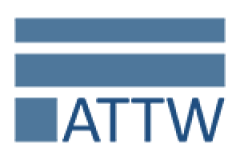The Association of Teachers of Technical Writing is the principal national organization of teachers of technical communication. We have unique responsibilities as academic professionals and general responsibilities as technical communication professionals.
Our code of ethics articulates these responsibilities. It states what we expect of ourselves and what others may expect of us while it offers specific points of reference for dealing with ethical situations. By nature it must be general and so requires responsible interpretation in any particular application.
Our core principles are presented first, followed by descriptions of these principles in practice. These two sections address our activities as both teachers and professional technical communicators.
Core Principles
Principles in Practice
The ways we put these principles into practice are grouped by relationship because ethics deals with our responsibilities in relating to others.
To Students
-
- To foster a sense of ethical responsibility to themselves, stakeholders, and the public.
- To prepare them for technical communication careers with the appropriate theories, knowledge, and skills.
- To respect them as individuals entitled to fair, equal, and helpful interactions and as professionals themselves.
To the Public
-
- To promote the understanding of the role and significance of technical communication in society.
- To develop technical and scientific literacies for informed, critical decision-making.
- To make our technical communications understandable to all those reasonably affected by them.
- To protect the security, confidentiality, and privacy of the information we are entrusted with.
- To adhere to standard principles of research with human subjects by obtaining informed consent and maintaining the privacy and confidentiality of research results.
To the Technical Communication Profession
-
- To advance the profession through continuing research, education, and training in the technologies of our field.
- To maintain the reputation of the profession by acting responsibly in teaching, research, consulting, and writing.
- To encourage the recognition of the teaching of technical communication as a valuable and tenurable activity.
- To promote increased participation by under-represented groups in academic and non-academic technical communication.
To the Academy
-
- To promote the academic traditions of advancing and sharing knowledge, tolerating diversity of opinion, offering responsible criticism, and encouraging freedom of expression.
- To promote intellectual property rights and fair use exceptions to facilitate the educational and critical use of information.
To Non-Academic Employers and Contractors
- To develop technical communications that aim to satisfy their needs, goals, and interests.
- To develop technical communications that are clear, effective, efficient, appropriate, accurate, useful, and delivered on schedule and within budget as nearly as possible.
- To respect their legitimate rights to confidentiality, security, and profitability in a competitive environment.
- To charge fairly, honestly, and appropriately according to mutually understood agreements.
- To make as clear and explicit as possible our contractual obligations, responsibilities, and expectations.
- To honor the terms of our contracts and to negotiate in good faith when disagreements arise.
- To improve technical communication practices in the workplace through continuing research, education, training, and dissemination of knowledge.
